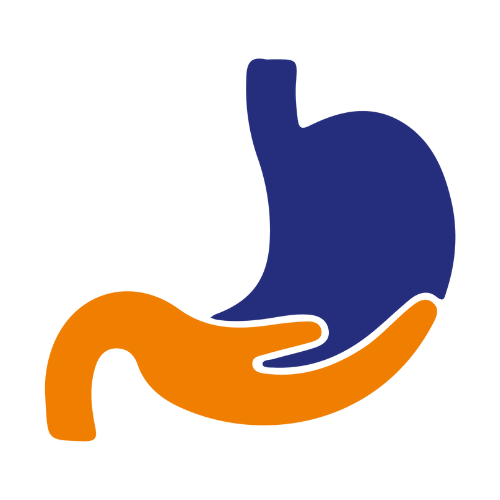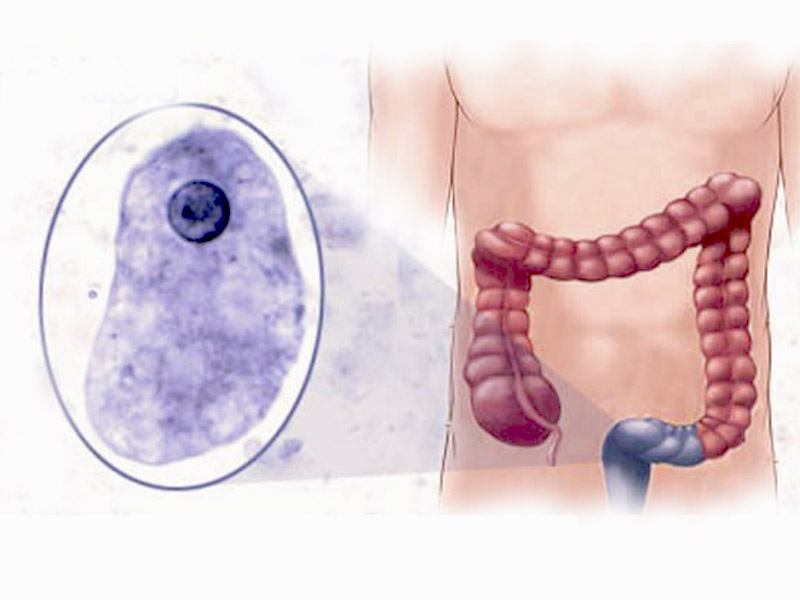Amoebiasis
Amebiosis is a medical condition in which intestines are infected by a parasitic – E. Histolytica.
What are the Symptoms?
- Pain in the stomach
- Belly cramps
- Diarrhoea
- Severe abdominal pain
- Blood in the stools
- Fever
What are the Causes?
E. histolytica is a single-celled protozoan that usually enters the human body when a person ingests cysts through food or water. It can also enter the body through direct contact with fecal matter.
The cysts are a relatively inactive form of the parasite that can live for several months in the soil or environment where they were deposited in feces. The microscopic cysts are present in soil, fertilizer, or water that’s been contaminated with infected feces.
Food handlers may transmit the cysts while preparing or handling food. Transmission is also possible during anal sex, oral-anal sex, and colonic irrigation.
When cysts enter the body, they lodge in the digestive tract. They then release an invasive, active form of the parasite called a trophozoite. The parasites reproduce in the digestive tract and migrate to the large intestine. There, they can burrow into the intestinal wall or the colon.
How is it Diagnosed?
- Your doctor may recommend for stool tests to screen for cysts.
- Blood tests may also be required to check for liver function.
- If the parasite has spread to internal organ, it does not show up in the stool. In such cases, ultrasound or CT scan may be recommended.
- Colonoscopy may also be performed to check for presence of parasites in the colon.
What are the Risk Factor?
Amoebiasis is more common in tropical countries such India, parts of central & South America & Africa. Risk of acquiring this infection is higher in:
- People living in poor sanitary conditions
- Men having sex with men
- People with compromised immune systems
Once the parasites get into the intestinal walls, they can enter the blood stream & move into various internal organs such as the liver, heart, lungs or brain. Once a parasite invades an internal organ, it can lead to severe complications such as:
- Infections
- Abscesses
- Severe illness
- Death
How is it Treated?
The treatment generally consists of the following:
- If you have symptoms, you’ll follow a 10-day course of the antiamoebic drug metronidazole (Flagyl) that you’ll take as a capsule, followed by an antibiotic such as diloxanide furoate or paromomycin.
- Your doctor may also prescribe medication to control nausea if you need it.
- If you do not have symptoms, you may be treated with antibiotics.
- If the parasite is present in your intestinal tissues, the treatment must address the organism as well as any damage to your infected organs.
- Surgery may be necessary if the colon or peritoneal tissues have perforations.

